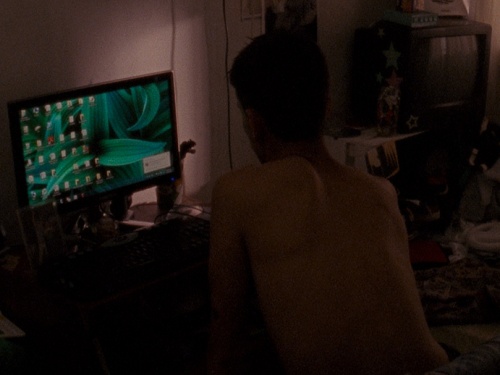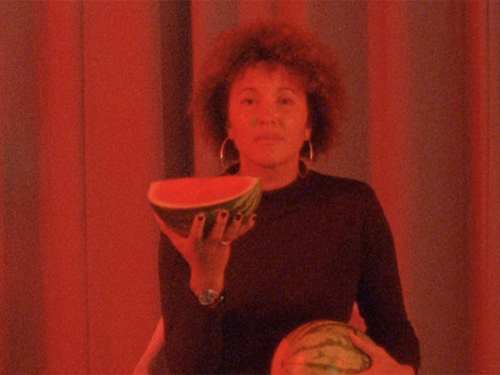Safar: Friday Forum
"We are not going to allow it to happen," Egyptian actor and megastar Hussein Fahmy told ICA's Friday Forum. He was talking about the private prosecutions currently being brought by Islamists against actors for defaming Islam in movies, sometimes movies nearly a decade old. The comedic actor Adel Imam had been convicted for his roles in films like Terrorism and the Kebab (1993) and sentenced to a three-month jail term that was changed into a fine of $170 in July.
During the launch of Safar: A Journey through Popular Arab Cinema, news quickly circulated that the well-known comedic actor had won his appeal against the conviction. It was a victory that bodes well for actors facing similarly dangerous situations. Elham Shahin of One-Zero (2009) is in a very public feud with an Islamic televangelist who accused her of corrupting women with her love scenes in films from the 1980s.
Fahmy, whose handsome visage has appeared in over 100 Egyptian films in the past forty years, denounced the prosecutions as “an attack on the arts as a whole, and movie stars are in the frontline.” He continued, “We have no other choice but to fight. Culture in Egypt, as we know it, is under threat.”
Fahmy was appearing on the Forum’s third panel, Arab Cinema in Practice, with Philippe Aractingi, the Lebanese director of Bosta (2005) and Under the Bombs (2007), and British-Egyptian actor Khalid Abdalla, who starred in United 93 (2006) and The Kite Runner (2007). Brian Whitaker from the Guardian chaired the panel, and at one point read a list of Egyptian government controls over the world’s third-oldest and fourth largest film industry. These restrictions on movies included criticising any religion, showing immoral actions and nudity, or the use of alcohol or drugs, contravening the sanctity of marriage or representing social problems as “hopeless” – Whitaker’s word – among other things.
“These were never a problem. We used to tease the censors.” Fahmy went on to say that the Egyptian movie industry had been guilty of all of the above-mentioned breaches of the code. Even Aractingi admitted to bypassing the Lebanese General Security (the government body in charge of censoring) by making two versions of Under the Bombs – a haram ('forbidden') edit including the sex scene for Europe and a halal ('permitted') edit sans sex scene for the Middle East.
Censorship and films
During the panel about Arab Cinema in the UK – the Past and the Future, London Film Festival programmer Ali Jaafar maintained that censorship had never stood in the way of good filmmaking. In the current 56th BFI London Film Festival programme guide, his entry of the film Wadjda directed by Haifaa Al Mansour supported his argument: as a film made in a Saudi Arabia, a country where cinemas have been banned for thirty years, by a woman who is not even allowed to drive a car in her own country.
Appearing on the panel with Jafaar was Mona Deeley, a founding director of the Zenith Foundation, which organised the first Arab film festivals in London, and Jason Wood, director of programming for the Curzon Cinema Group. Their discussion, chaired by Safar’s curator Omar Kholeif, focused on the UK market for these kinds of films. It prompted Jafaar to take an informal poll of the ICA audience. He wanted to find out how many people went to see Nadine Labaki’s latest film Where Do We Go from Here? (2012) in a London cinema, and what prevented those that didn’t make the effort from going.
Interestingly, Wood put audience numbers in perspective. If a film doesn’t do well on the first Friday and Saturday evenings at the Curzon, he explained, it is moved to a smaller screen and ends on the Thursday. So people with an interest in Arab cinema had better come out as soon as possible because the initial showings will determine how widely a film is distributed.
There was also discussion about what happens to Arab films after they are no longer available in cinema theatres. Deeley, now producer of the BBC Arabic weekly programme Cinema Badila (Alternative Cinema), started the Zenith online DVD store to help distribute Arab films. She found that Warner Independent Pictures, the distributors of such films as Hany Abu-Assad’s Paradise Now (2005), about two Palestinian suicide bombers, had virtually shelved the film. A member of the audience wondered if this was deliberate ploy on the part of Warner’s because of the movie’s contentious topic matter – an indication that conspiracy theories are never far away from any discussion of Arab culture. However, Jafaar added that these same big distributors accused of shying away from delicate topics were the ones who were willing to do the expensive restoration work on films.
Invention of sound and the rise of Arab cinema
The Forum’s first session, Popular Arab Cinema – Academic Perspectives began with a Q+A with Dr Viola Shafik, a freelance filmmaker, curator and author of seminal academic books on Arab cinema. She revealed that the invention of sound in cinema marked the beginning of all third world film industries in the 1930s, because these countries found local markets through the use of humour and music in their films.
Dina Matar, head of the Centre of Media and Film Studies at SOAS who was asking the questions, wondered whether 'Arab cinema' was an accurate term.
According to Dr Shafik, the French phrase – le cinema Arabes – which made use of the plural, was more appropriate. Her first book Arab Cinema: History and Cultural Identity (1999) included 'Arab' in reference to the countries, but she was not trying to reproduce Pan-Arab discussions or a unitary ideology. Rather she was attempting to describe a pluralist image of the Arab world. As local cinema cultures developed in other Middle Eastern countries a rivalry emerged between these new cinemas (with their local identities and anti-colonial ideas) versus popular Egyptian cinema, the 'dream factory' regional equivalent of Hollywood films. As for cinema after the Arab Spring, she cited as a comparative example the movies that came out after revolutions in Cuba and the USSR, saying that Arab filmmakers would need a good ten years of reflection to produce anything worthwhile.
Notably Matar mentioned that all popular culture in the Middle East had been marginalised, which sparked a discussion about the current boom in Arab fine art and the role of curators and galleries versus cinema. Art, Dr Shafik noted, is promoted through institutions and not through audiences, as is cinema. Festivals and art-house circuits also put pressures on Arab cinema, and she identified the ‘acceptable topics’ that Western audiences expect this cinema to address: Palestinian questions, terrorism and the role of women. She then quoted the African filmmaker Sulaiman Sesay who once said, “What they want from us is ethnographic films.” Dr Shafik also stressed that there was never a critical appraisal of Bollywood in the West until India became a successful emerging economy.
Cell-phone cinema
Meanwhile in the region, new trends, both political and technological, are rapidly impacting on the art form. Fahmy said that his grandson has made a film which is competing in a mobile phone festival. In the future movies are going to be watched on phones and iPads, not in cinema theatres. Gone were the days of the grand movie-houses like the Rivoli, with 1,500-seater capacity, where films that the veteran actor, director and former UN Goodwill Ambassador once starred in were screened four times a day. Modern-day theatres in Cairo sometimes only hold up to 80 people. He felt that Egyptian cinema needed to reconnect with its audiences and recalled when one of his films played in Tunisia, a country with a long-standing cinema tradition. The Tunis movie-house was not only full; its doors were wide open and crowds of people stood outside, listening to the movie. In Lebanon, too, according to Aractingi, 3.4 million people go to the cinema each year, unless something like a bomb or another unforeseen mishap keeps them at home.
Interestingly, actor Khalid Abdalla, who founded the collectively-run media centre Mosireen, and co-founded Cimatheque, an independent alternative cinema space in Cairo, has been involved in screening films and holding workshops for filmmakers. One of the biggest changes, he believed, to come out post-Arab Spring is the way that filmmakers hold a camera, and how documentary techniques would change fiction and feature films. Thoughtful and engaged, he concluded by saying: “Showing a film and a thousand people come to see it, that is community. When the audience only reaches groups of twenty then they are easily ignored by the government or the banks.” In time, it seems, as a greater variety of better-made films speak to audiences, both inside and outside the Middle East, Arab cinema will once again build community, confidence, political awareness, identity and aspiration. Watch this space.
This is the final blog post by guest blogger Malu Halasa, Writer in Residence for Safar: A Journey though Popular Arab Cinema, a season of classic and contemporary Arab cinema at the ICA from 21 – 27 September 2012.
This article is posted in: Articles, Blog, Film
Tagged with: articles, Film, Film Festival, Forum, Guest blogger, Panel discussion, Q+A, Safar, writing





